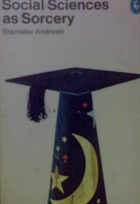James McGrath appears to have conceded the possibility that Earl Doherty may (perhaps only theoretically) be right when he wrote:
Even if one granted that by “according to the Scriptures” Paul might have meant “according to what I have read in and derived from the Scriptures,” that would still not be incompatible with his understanding the Scriptures in questions as predictions of or applying to a historical Jesus
Not that McGrath believes for a minute that this is what Paul meant, since he later corrects any possible misunderstanding of his position by adding that the dominant view among biblical scholars is something else:
the dominant view, which is that the early Christians had persuaded themselves, wrongly of course, that the death and resurrection of Jesus were foreseen in Scripture, and that that is what Paul is referring to here.
[Since posting the above James McGrath has expressed concern that I misrepresented his stance, so to avoid any suspicion that I was implying McGrath holds a view he does not hold, let me repeat more prominently what I said just now:
Not that McGrath believes for a minute that this is what Paul meant . . . . ]
Surprisingly McGrath does not also explain that the first evidence that Christians came to think that Jesus’ death and resurrection were foreseen in the scriptures appears only quite some time after Paul wrote, and that the argument that Paul himself meant this is entirely an extrapolation from the mainstream model of Christian origins.
But anyway, I found Doherty’s response worth a read. What if Paul did mean to say that he learned about Christ from reading the Scriptures? Would this really impact the assumption that Jesus was historical and not entirely a figure understood through Scriptural revelation? Continue reading “Even IF “according to the Scriptures” meant “according to what we read in the Scriptures” . . . .”


 James McGrath begins his
James McGrath begins his 
